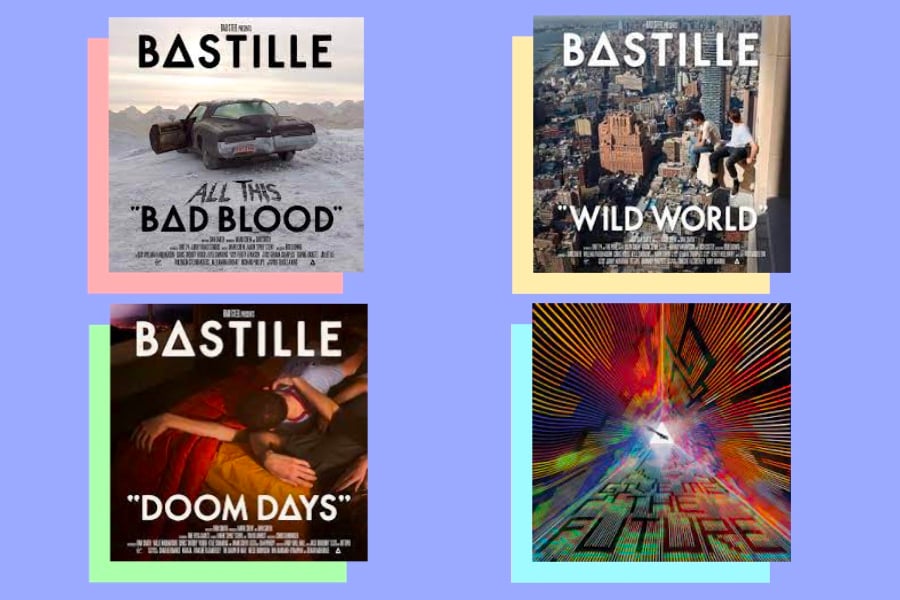Liner Notes: Bastille escapes to dystopia on “Give Me the Future”
Bastille released their fourth studio album “Give Me the Future” on Friday. The 13 tracks explore a dystopian present and future.
February 8, 2022
Every song on Bastille’s latest release, “Give Me the Future,” sounds the same, in the best way possible.
The band’s fourth studio album, which dropped Friday, is musically and thematically cohesive in its yearning to escape to a future that may not be so great after all. Its upbeat pop sounds are complemented by hints of rock, alternative and punk music, as well as haunting vocal harmonies and electronic sound effects. The lyrics strike a fascinating combination of escapism and dystopian nightmares.
The first track, “Distorted Light Beam,” perfectly introduces the album’s vibes. Over a pop soundtrack with a solid drum beat and laser-like sound effects, lead vocalist Dan Smith opts to trade reality for fantasy through lyrics like “feeling like if this is life / I’m choosing fiction.” True to its title, the song includes a section of electronically distorted vocals.
Things take a darker turn two tracks later on “No Bad Days.” While the title and tune initially sound optimistic, the lyrics allude to the relief that comes with death. In a beautiful falsetto, Smith sings “when you’re gone, gone / there’ll be no bad days.” Of all the alternatives to real life that Bastille explores on this album, death is definitely the most grim.
Classical dystopia is the next option Bastille considers, though notably less enthusiastically. “Back to the Future” is packed with references to novels George Orwell’s “1984” and Aldous Huxley’s “Island,” as well as films “Blade Runner” and “Back to the Future,” the song’s namesake. Once again, despite its somewhat upsetting message, the song’s intelligent lyrics and dance beat make it a fun listen.
The album includes some interesting spoken elements. A robotic female voice, which sounds similar to Apple’s Siri or Amazon’s Alexa, opens with one song called “Stay Awake?” The aural reference is one of many callouts of modern technology and its dangers.
The seventh track on the album, “Promises,” isn’t a song at all but rather a spoken word poem written and performed by actor Riz Ahmed. It’s a dystopian love poem warning of “A.I. in the sky humming / the world’s burning” while romantically declaring “the whole of human history aligned so we could slow dance.” Ahmed’s emotional words represent one possible reaction to present-day challenges: to accept impending doom and embrace love.
We get a short break from the gloom and doom with “Shut Off the Lights,” whose lyrics actually match its upbeat sound. The song feels like the promise of a private dance party, addressed to a nondescript lover with a shouted refrain of “shut off the lights, we don’t need them to dance.” It’s an escape from escapism, with Smith even promising his lover “no talk of the future now.”
Bastille also manages to close the album on a hopeful note. The final song “Future Holds” is reminiscent of something that might be played at a high school graduation, especially at the chorus of “who knows what the future holds? / Don’t matter if I got you.”
After (often cynically) pondering the future for 13 tracks, Bastille surrenders to the dystopian world they’ve created — or predicted.
Email: [email protected]
Twitter: @AlexaCrowder
Related Stories:
— Liner Notes: Adele chronicles divorce in “30”
— Liner Notes: Taylor Swift begins again with “Red (Taylor’s Version)”
— Liner Notes: Coldplay shoots for the stars with “Music of the Spheres”


